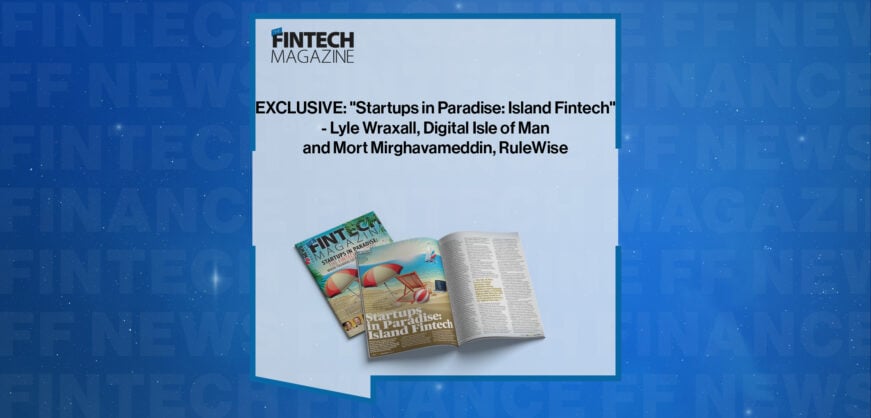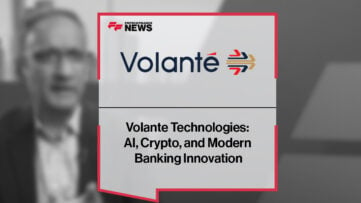Breaking News

EXCLUSIVE: “Brave New Worlds” – Julia Streets, Streets Consulting in ‘The Fintech Magazine’
We speak to TradeTech chair and diversity champion Julia Streets about the opportunities and challenges the metaverse presents to the investment industry
When Mark Zuckerberg changed his company’s name from Facebook to Meta in 2021, the term ‘metaverse’ became part of the mainstream. The same year, a digital artwork called Everydays: The First 5000 Days set a record for a non fungible token artwork when it sold through Christie’s for $69million.
For some time, gaming had embraced an early version of the metaverse, with the likes of Fortnite, boasting 250 million average monthly players, delivering an open-world concept and in-game currency. But suddenly everyone was talking about the new world of virtual reality as a business opportunity.
To rewind for a moment, it’s probably helpful to nail down exactly what the metaverse is. The dictionary definition says it is a ‘version of the internet that incorporates three-dimensional virtual environments’, but this doesn’t really go far enough. Perhaps a more useful description is that the metaverse represents a spatial computing platform meant to replicate the real world, with all the key aspects of a fully
functioning society, like social settings, currency, economy and trade.
And it is in those last three contexts – currency, economy and trade – that many in the investment industry are treating the metaverse as the next evolution in ho they will do business. The industry wants and needs to be anywhere that wealth is created and assets are traded, and the metaverse potentially allows it to connect with a whole new generation of potential investors, customers, and clients.
The direction of travel seems clear. In June 2022, Publicis, the international PR firm that represents many major financial services companies, revealed that it now had more than 1,000 employees dedicated to developing metaverse projects for clients. Those staffers include a digital avatar called Leon who serves as the company’s new chief metaverse officer.
In February 2022, JP Morgan announced it would be the first bank to establish a presence in the metaverse, opening a lounge in the popular blockchain-based world, Decentraland. According to a JP Morgan report, the economics of the metaverse – or metanomics – offers a market opportunity of US$1trillion in annual revenue.
In late 2022, DBS bank partnered with The Sandbox, the largest virtual world in terms of transaction volumes, to launch DBS BetterWorld to demonstrate how the metaverse can be used as a force for good. Then, this month (June), Apple announced the launch of its Vision Pro VR headset, billed by many as the iPhone of virtual reality. Taking on competitors like Microsoft’s Hololens, Meta’s Oculus and Magic Leap, Apple has called its new device ‘a revolutionary spatial computer that seamlessly blends digital content with the physical world, while allowing users to stay present and connected to others’.
Vision Pro is most likely to become, literally, something of a game-changer – and anywhere these highly valuable big tech, trend-setting companies go, traders are sure to follow. After a couple of years in which more temporal concerns took bosses’ minds off the virtual to concentrate on the very real implications of war and recession, Apple has put decentralised worlds back in the headlines. Shares in Unity, the game-development software maker that Apple’s working with on the product, jumped 26 per cent, while Disney shares also got a boost after saying its Disney+ service would be available on Vision Pro.
Julia Streets, founder and CEO of Streets Consulting, a business development, marketing and communications consultancy working with many in the investment sector, has been keeping a close eye on how this new technology and the way we experience it will impact the financial industry. A former global head of communications at Atos Euronext Market Solutions and head of marketing and sales development at agency-broker Insteint, her company has been operating a virtual business model for over a decade. In 2023, she launched a fascinating online show called Metaverse: What Matters, a head-to-head with Dr Catriona Wallace, the founder of the Responsible Metaverse Alliance, in which the two women’s avatars discuss the key opportunities and challenges that the new technology brings.
Dr Wallace, in Australia, and Streets in the UK, meet virtually in the metaverse. It’s a fun and strangely compelling way to deliver content and take an honest look at a potentially exciting new medium. Some of the issues it raises echo themes in Streets’ other long-running podcast DiverCity, now in its 15th season, in which a real Streets chats with a broad spectrum of leaders – from the Governor of the Bank of England to small, unheard-of networks – about areas of transformation and aspects of diversity and inclusion in financial services and related industries.
“I have posed the question quite a few times that if we are fighting to keep digital talent today, what is this going to look like in the future?” Streets says. “There is this great big metaverse beast cantering over the hill, so, if you’re not maintaining a really strong culture to attract and retain your digital talent, watch out, because that is going to be a very attractive place to play.
“There is this great big metaverse beast cantering over the hill, so, if you’re not maintaining a really strong culture to attract and retain your digital talent, watch out”
“And this is definitely not going away. It’s certainly on people’s minds. We know the investment is going in; $120billion last year alone went into building out metaverse technology and infrastructure. So how is the investment industry going to react to this new environment?”
In Metaverse: What Matters, Dr Wallace, an ethical AI specialist and Streets addresses a number of key issues.
“Like what do we need in terms of governance?” says Streets. “Who’s going to regulate it? How are we going to protect certain constituents within the metaverse? How is content going to be created? How are we going to interoperate between different metaverse worlds, and also the real world?
“When we consider what we’ve learnt from social media, and Web 2.0, how do we bring some of that best thinking into good governance and good metaverse behaviours?” continues Streets. “And then also thinking about the diversity, equity, and inclusion piece, because that’s really important.”
DIVERCITY LAND?
In investment management, the world Streets knows best, the data on diversity and inclusion isn’t encouraging. A 2019 Knight Foundation analysis, as reported by Forbes, found that firm owned by white men manage 98.7 per cent of the $69trillion handled by the US asset management industry.
Furthermore, a 2017 survey found that 88 per cent of senior fund managers are white and the pipeline of talent looks very much like them: junior positions such as analysts and associate managers are more than 70 per cent white. Women, meanwhile, make up only
eight per cent of professional investors. Clearly, organisations have been falling behind in their governance when it comes to diversity. With that in mind, and using knowledge gleaned from her career and interactions with her audiences via her podcasts, Streets has come to her own conclusions on what will drive diversity – of gender, age, ethnicity, sexual orientation, faith, physical ability, and neuro diversity – in organisations such as the ones she deals with every day.
“Number one is leadership. So, right from the very top, take it seriously, and be authentic, and live and breathe it every day,” she says. “Then take it down to your next level of management, which is point two, and create enlightened leaders. This is the age of enlightened leadership. What you have learned about how you run your businesses in the past, doesn’t apply today, because of technology, climate change, and some other big questions that weren’t on the agenda a while ago, like hybrid working. We’re managing teams like we’ve never managed teams before.
“The third thing is recruitment. How do you write your job descriptions? How do you attract talent? And then how do you retain that talent? That’s where culture really comes in; a culture to retain aspirational talent within your organisation.
“Which leads on to the fourth thing, which is role models and allies. Making sure that your senior leadership team, and also your employees and teammates, are coming forward as role models and allies for each other. This flows into the fifth, which is the power of networks, individual networks around particular employee resource groups, but also the intersectionality between networks. And once they begin to start working together, as leaders at the top of your organisation, they will tell you everything you need to know.”
But competition for skills increasingly needed by the investment industry is also those for which there is the hottest competition. According to a PwC survey last year, 46 per cent of companies across the board are hiring people with metaverse-related skills – including software engineers and developers, and AI engineers. If the choice is between working in an overwhelmingly white, male-dominated environment and a vibrant, diverse and inclusive one, most young recruits are likely to choose the latter.
That doesn’t have to be the case in future, says Streets: if the mindset is right, she believes meaningful change is achievable in the investment industry.
“It’s all about purpose; purpose-driven organisations will attract and retain the best talent across the entire spectrum,” she says. “I firmly believe that rather than just looking in the same pools and turning up the same results, the talent can be found right beneath our noses, we just need to think differently.”
This article was published in The Fintech Magazine Issue 28, Page 74-75
People In This Post
Companies In This Post
- DIFC’s Dubai FinTech Summit Expands Globally with Pakistan Digital Authority Read more
- GoldenPeaks Capital Secures Largest PPA Deal in Hungary With Hankook Read more
- Volante Technologies: AI, Crypto, and Modern Banking Innovation Read more
- Payment Spayce and Sagicor Bank: Innovating Fintech for the Caribbean Market Read more
- Top Companies Supporting Former Workers with German Pension Refunds Read more


















